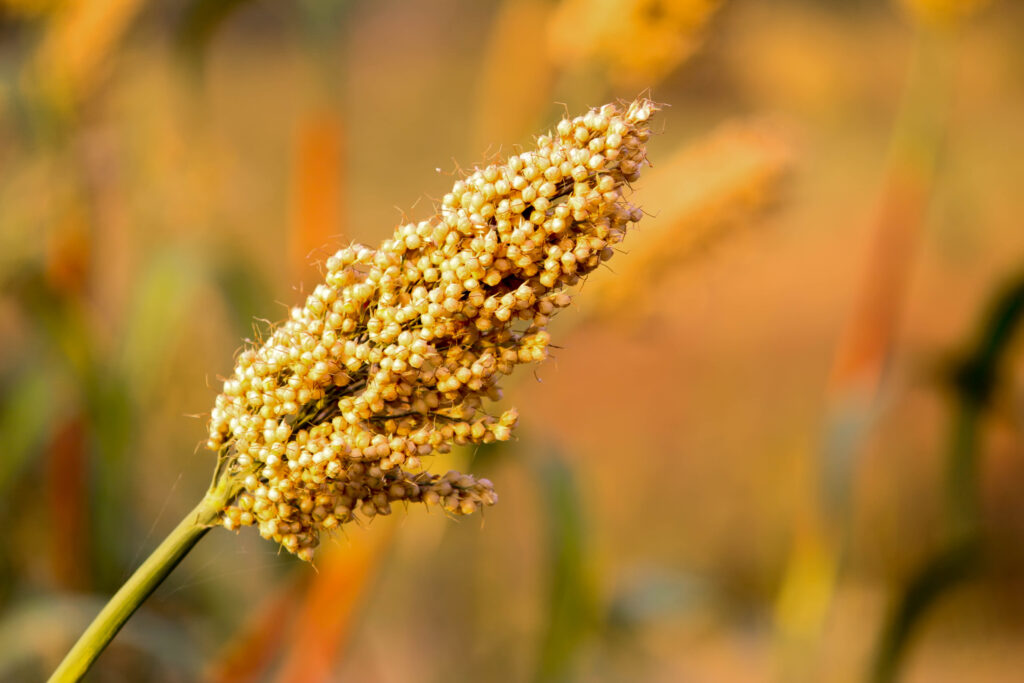SugaROx

SugaROx is a young venture, based at Rothamsted Research in Harpenden, UK, developing biostimulants to improve food security.
To feed the ever-increasing world population, farmers in developed countries need to improve crop yields by up to 60% by 2050 – and a staggering 200% in developing countries. This is particularly challenging with global warming entering the picture. When the world faced food shortages at the turn of the 20th century, chemical manufacturing enabled a jump in crop productivity with the Harber-Bosch process which provided an abundance of synthetic fertilizers. SugaROx is deploying fine chemistry, used to produce active ingredients for pharmaceuticals, to synthesize natural plant molecules that can stimulate better use of carbon and nutrients by crops.
Biostimulants stimulate plant or soil processes to improve crop yields, resilience to climate change or food quality. SugaROx’s first active ingredient, a modified version of the sugar trehalose-6-phosphate (T6P), is designed to be sprayed onto crops. Knowledge about the role of T6P in plants was developed over 20 years of publicly-funded research at Rothamsted. The breakthrough allowing effective use of that came from a collaboration between Dr Cara Griffiths and Dr Matthew Paul, Plant Biologists at Rothamsted, and Prof Ben Davis, an Organic Chemist at Oxford University. The venture was spun out in early 2021 with SugaROx having exclusive licence to their patented invention.
So why increase the content of T6P in plants? Well, by increasing T6P content, SugaROx tricks plants into thinking there is an abundance of resources for growth and grain filling. This works under good and challenging growing conditions, like drought. In its natural form, T6P can’t enter plant cells through spraying. SugaROx chemically modifies its structure so it can pass into cells. When it enters the cell, sunlight removes the chemical modification, leaving T6P in its biologically active form. The IPR licensed by SugaROx covers the modified T6P and its use in agriculture and horticulture.
Field trials are ongoing in the UK, Europe, US, Canada, Brazil and India, with an initial focus on wheat. SugaROx has observed crop yield improvements of 5 – 22% in normal conditions and even 4 – 14% in drought like conditions. These results can then be projected to improvement in profits for farmers and reduced carbon footprint of grains. SugaROx has similarly impressive data for other crops including sorghum, millet, barley and corn, with their approach valid for all plants. New applications are also being considered in soybean, tomato and strawberry production.
 sorghum or jowar grain field
sorghum or jowar grain field
SugaROx has performed external toxicology studies, showing good results, ensuring they will be able to navigate future regulations, which are on the horizon. They are currently scaling production of T6P for further testing. Commercial launch for their first product is expected by 2026. Future innovation projects include investigating how their approach can be applied to other natural molecules which can improve different biological processes, enhancing crop yields further.
In order to achieve their goals, SugaROx is looking for potential go-to-market partners who can help with validation trials, with SugaROx aiming to operate a B2B model through distributors. They recently closed their seed funding round, with Series A expected mid-2025.
We are looking forward to seeing how a fellow Rothamsted tenant performs, with SugaROx having an excellent solution to a growing, and vitally important market. If you are interested in partnering or speaking with SugaROx please reach out to Bianca Forte, Business Development Director to learn more.
Images courtesy of SugaROx